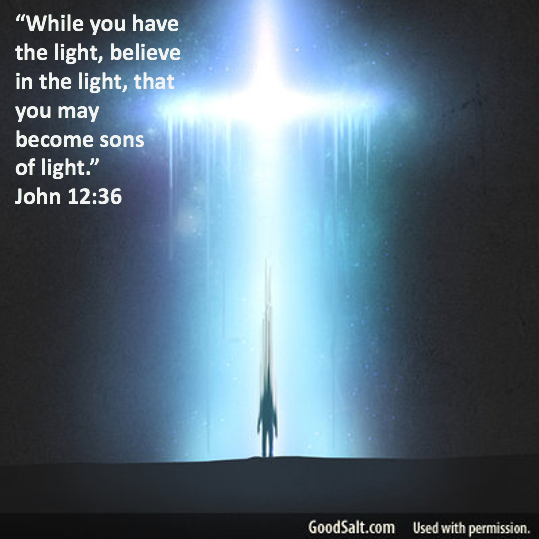“Then the detachment of troops and the captain and the officers of the Jews arrested Jesus and bound Him.” John 18:12
In the first twelve verses of John 18, we are learning how to endure difficult times. So far we have discovered we can do this when we…
– Learn about the love of Christ (John 18:1a).
– Look to the Lord in prayer (John 18:1b).
– Lean on the power of Christ (John 18:2-8a).
– Listen to the command of Christ (John 18:8b).
– Let Christ protect us now (John 18:9-11).
The sixth and final way to endure difficult times is to LET CHRIST HAVE YOUR BURDENS BECAUSE HE UNDERSTANDS (John 18:12; cf. Hebrews 4:15). The apostle John writes, “Then the detachment of troops and the captain and the officers of the Jews arrested Jesus and bound Him.” (John 18:12). Although the disciples were not arrested, Jesus was “arrested… and bound.” The word “arrested” (synelabon) means “to grasp together or seize.” 1 Since Jesus offered no resistance, it is not clear why they “bound” the Lord. Perhaps they were afraid Jesus might use His supernatural powers and attempt to escape.
This verse is especially powerful for those who are incarcerated. They have been arrested. Jesus was also arrested. Christ was arrested even though He was innocent. There are some in prison today who were arrested even though they were innocent. Jesus was falsely accused. Some prisoners may have also been falsely accused. Christ has much in common with those in jail or prison. As some of you reading this article know, being arrested is not a pleasant experience, especially if you are innocent. Christ understands what it is like to be arrested. He knows what it is like to be falsely accused. He understands how you feel, and He wants to help you. He has a greater capacity to care for you because He understands what you have gone through (cf. Hebrews 4:15).
The Bible says, “6 Therefore humble yourselves under the mighty hand of God, that He may exalt you in due time, 7 casting all your care upon Him, for He cares for you.” (I Peter 5:6-7). Christ cares more for you than any other person in the universe. Let Him have your burdens and worries.
John wrote his gospel so non-Christians “may believe that Jesus is the Christ, the Son of God, and that believing you may have life in His name.” (John 20:31). As you read this, you may not know for sure that you will go to heaven when you die. We have learned several truths from John 18:1-12 about Jesus that compel us to believe in Him for everlasting life:
1. Believe in Jesus because He loves you and paid the full penalty for your sins (John 18:1a; 1:29; 19:30). When Christ crossed over the Brook of Kidron which was soaked with the blood of the Passover Lambs, He was reminded that as the Lamb of God, He would be sacrificed on a cross for the sin of the world (John 1:29). Christ could have turned around and run to safety. But He did not. Why? Because of His great love for you and me. Jesus continued up to the Garden of Gethsemane knowing that He would be arrested and crucified for you and for me. That’s how much He loves us! Christ loves you and me whether we are a good moral person or a person who has spent more time in jail than out of jail. Even when we are at our worst, God still gives us His very best. The Bible tells us, “But God demonstrates His own love toward us, in that while we were still sinners, Christ died for us.” (Romans 5:8). Jesus loves us and wants to begin a forever relationship with us. Believe in Him.
2. Believe in Jesus because He has prayed for you (John 18:1b; cf. 17:20-26; Luke 22:39-43). When Jesus was in the Garden of Gethsemane, He was thinking of our sins being placed on Him when He would die on the cross. This is why the Bible tells us that “He began to be sorrowful and deeply distressed.” (Matthew 26:37). Christ was overwhelmed by the thought of being separated from His Father in heaven as our sins would be placed upon Him. Yet Jesus prayed, “Father, if it is Your will, take this cup [of suffering] away from Me; nevertheless not My will, but Yours, be done” (Luke 22:42). Through prayer, Jesus submitted to His Father’s will which included dying for our sins in our place.
3. Believe in Jesus because there is power in His name to give you eternal life and keep you secure forever (John 18:2-8a; cf. 10:28-29; 20:31). Since Jesus has the power to make an army fall down before Him, He also has the power to give us eternal life which can never be lost. The Bible tells us, “Nor is there salvation in any other, for there is no other name under heaven given among men by which we must be saved.” (Acts 4:12). “No other name” – not Muhammed (Islam), Buddha (Buddhism), Confucius (Confucianism), Joseph Smith (Mormonism), Charles Taze Russell (Jehovah Witnesses), Ellen G. White (Seventh-Day Adventist), Theophilus Lindsey (Unitarianism), Rubin Ecleo (PBMA), Apollo Carreón Quiboloy (Restoration Church/ Kingdom of Jesus Christ), Felix Manalo (Iglesia Ni Cristo), Eli Soriano (Ang Datin Daan) – nor any other religious founders can save us from our sins. Only Jesus Christ can save us from our sins because He paid our sin debt in full when He died in our place on the cross and rose from the dead (John 19:30; I Corinthians 15:1-8), proving that His claim to be God is true (Romans 1:3-4). Believe in Him.
4. Believe in Jesus because He has the power of command (John 18:8b). When the Roman soldiers and temple guards came to arrest Jesus, Christ tells them what to do and they follow His orders. They don’t arrest any of His disciples because He has the power of command. If we are going to go to heaven when we die, we must listen to and obey the command to believe in Christ for everlasting life. “And this is His commandment: that we should believe on the name of His Son Jesus Christ…” (I John 3:23). There are many religious leaders commanding us what to do to go to heaven – pray toward the east five times a day. Go to church. Turn from your sins. Confess your sins. Meditate. Pray every day. Be baptized with water. Give to the poor. Keep the Sabbath. Love your neighbor as yourself. Do to others as you would have them do to you. But none of these are things Jesus commanded us to do to have everlasting life. What did Jesus say to do to have everlasting life? “Whoever believes in Him should not perish but have everlasting life” (John 3:16). Do you believe this? If you do, Jesus guarantees that you now have everlasting life.
5. Believe in Jesus Who will protect you forever (John 18:9-11). Just as Jesus protected Peter and the other disciples physically from the well-armed soldiers and guards, He will also protect us spiritually forever the moment we believe in Him (John 10:28-29). No one will be able to overpower Christ and take His eternal life away from us. We are secure in His hands forever.
6. Believe in Jesus because He understands your need for eternal life (John 18:12; cf. Romans 3:23; 6:23; Revelation 20:15). All of us deserve to be in a spiritual prison forever in a place called hell because all of us have sinned against God (Romans 3:23; Revelation 20:15). Our sin separates us from God because He is holy and righteous and cannot be around our sin (Isaiah 59:2; 64:6; Romans 6:23). Just as Jesus understands what it is like to be arrested and falsely accused, He also knows how it feels to be separated from God because the sin of the world was placed on Him when He died on the cross, causing Him to be temporarily separated from His heavenly Father (cf. Matthew 27:46; 2 Corinthians 5:21).
Christ does not want you to die forever in hell (I Timothy 2:3-4). This is why He died in your place and rose from the dead – so you could live with Him forever in heaven. All He asks is that you believe or trust in Him alone for His free gift of eternal life. Jesus said, “He who believes in Me has everlasting life.” (John 6:47; cf. John 4:10-14; 11:25-26; Romans 6:23b).
When you believe in Jesus for His gift, Christ gives you everlasting life starting at that moment of faith (John 6:47). How long does everlasting life last? Forever! Does eternal life ever end? No. So even if you sin tomorrow, next month, or next year, do you still have everlasting life? Yes, because Jesus remains faithful to His promise of everlasting life (John 3:16; 6:47) even if we are unfaithful to Him (cf. 2 Timothy 2:13).
The Bible also says that when you believe in Jesus for eternal life, you become a member of God’s family forever. John 1:12 says, “But as many as received Him, to them He gave the right to become children of God, to those who believe in His name.” So if you believed in Jesus for eternal life, God is now your Father and you are His child forever. If God is your Father and He is my Father, what does that make you and me? Brothers and sisters in Christ because we now have the same Father in heaven. It does not matter what color of skin you have or what culture you are from. If you believe in Jesus, we are family because of the shed blood of Jesus Christ. The color of His blood is the same as yours and mine.
And when you believe in Jesus, He comes to live inside you (Galatians 2:20) through His Holy Spirit (Romans 8:11; Galatians 3:2; Ephesians 1:13-14). And He promises never to leave you nor forsake you (Hebrews 13:5). So if Jesus always lives inside you, do you ever have to feel lonely? No. You may feel lonely at times, but your feelings can lie to you. Focus on the truth of God’s Word instead of your feelings.
The Bible also says that when you believed in Jesus, you now have a future home in heaven (John 3:16; Revelation 21-22). So there is no need to be afraid of death. Even if people threaten to kill you for sharing Christ, you do not need to be afraid because Christ guarantees to take you to heaven the moment you take your last breath (John 11:25-26; 14:2-3; cf. 2 Corinthians 5:6-8; Philippians 1:21-23).
If you have never understood and believed this before today, but now you do – you can tell God this through prayer. Praying this prayer is not what gets you to heaven. Only believing in Jesus alone for His gift of eternal life gets you to heaven. This prayer is simply a way to tell God you are now trusting in His Son. If you would like, you can say to God:
“Dear Lord Jesus, I come to you now as a sinner. I cannot save myself. I believe You died in my place on a cross and rose from the dead. I am now trusting in You alone, Jesus (not my prayers, my religion, or my good life), to give me everlasting life and a future home in heaven. Thank You, Jesus, for the everlasting life I now have and for the future home I will have in heaven. In Your powerful name I pray. Amen.”

To help you grow in your new relationship with Jesus Christ, please download our free digital discipleship materials on this website (see diagram 1) to go through with other people who are seeking to know Jesus. Thank you, and may Jesus richly bless you.
ENDNOTES:
1. A Greek-English Lexicon of the New Testament and Other Early Christian Literature, compiled by Walter Bauer, trans. and adapted by William F. Arndt and F. Wilbur Gingrich, 2nd ed., rev. and augmented by F. Wilbur Gingrich and Frederick W. Danker (Chicago: University of Chicago Press, 1979), pg. 776; Archibald Thomas Robertson, Word Pictures in The New Testament, Vol V: John and Hebrews (Grand Rapids: Baker Book House, 1932), pg. 286.




